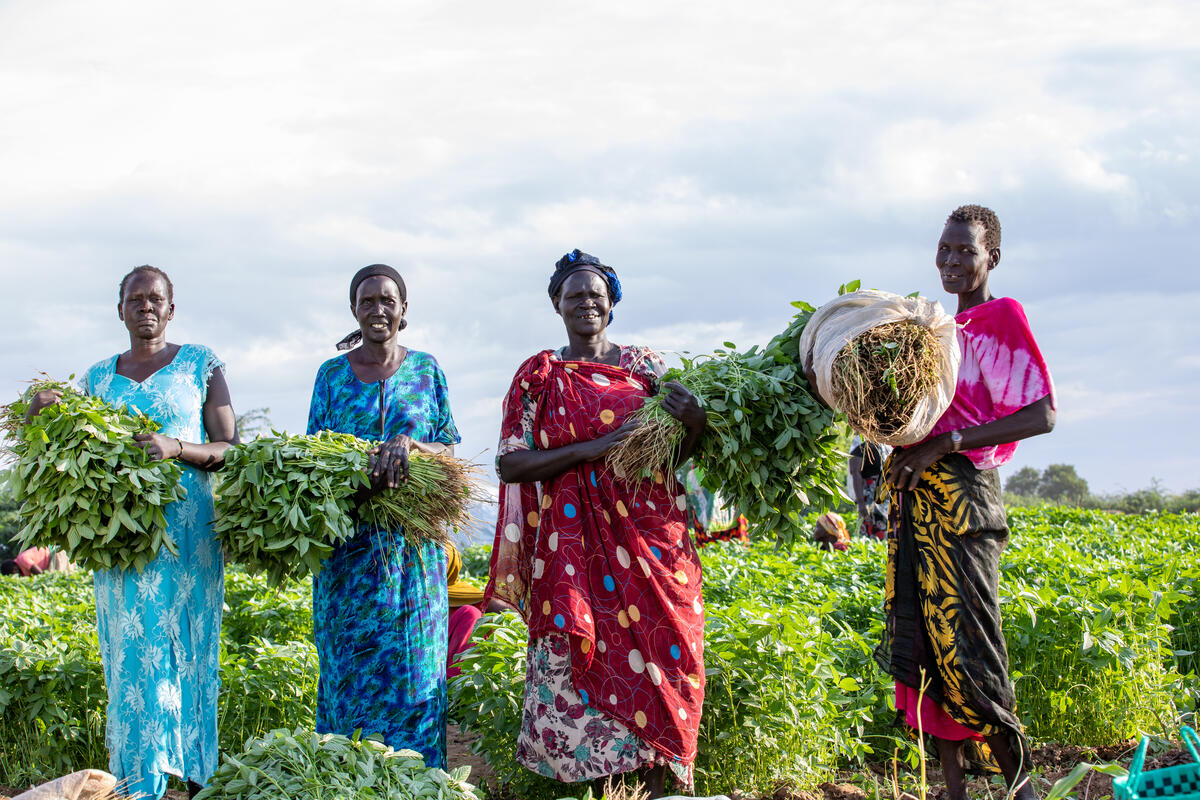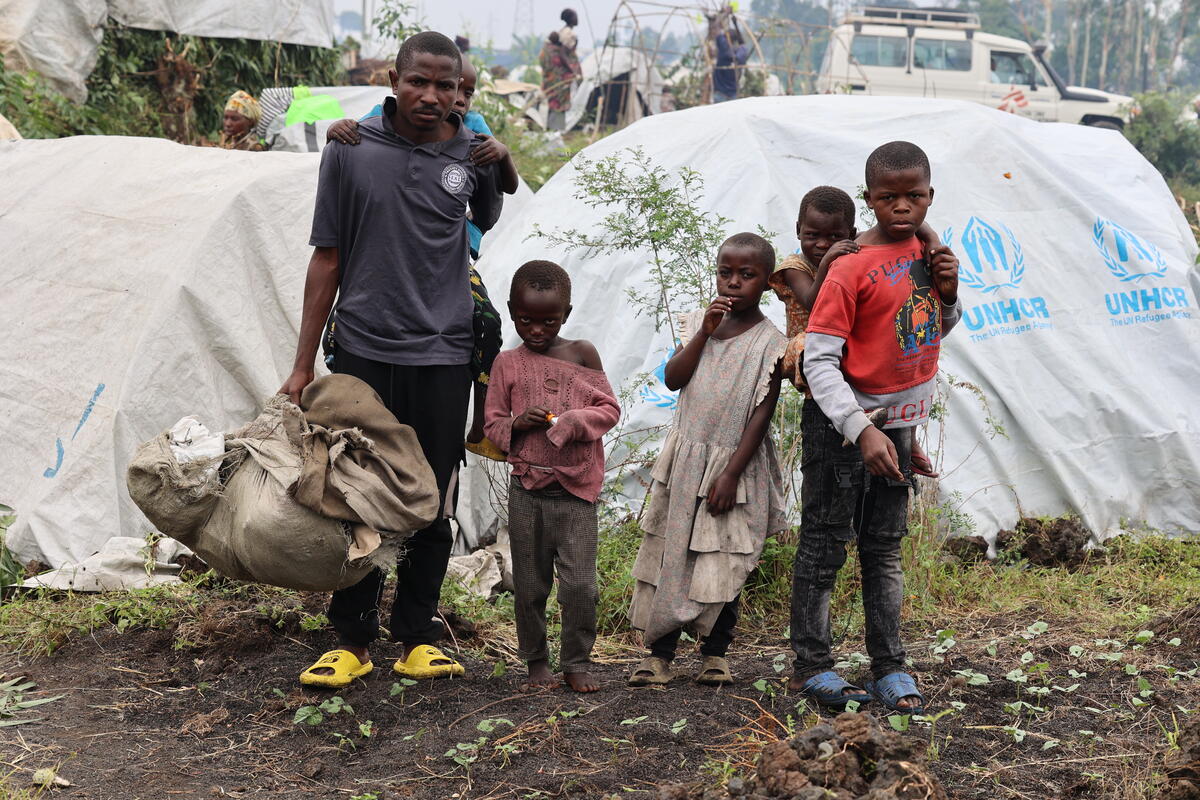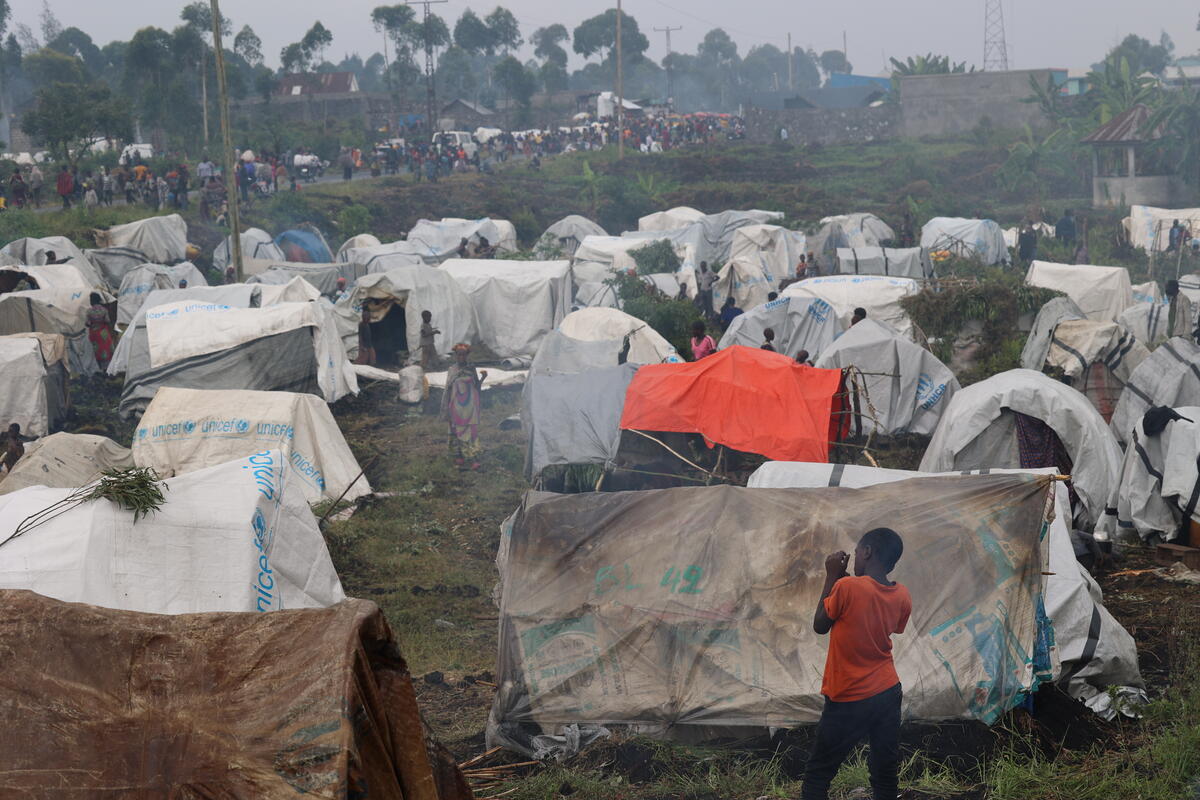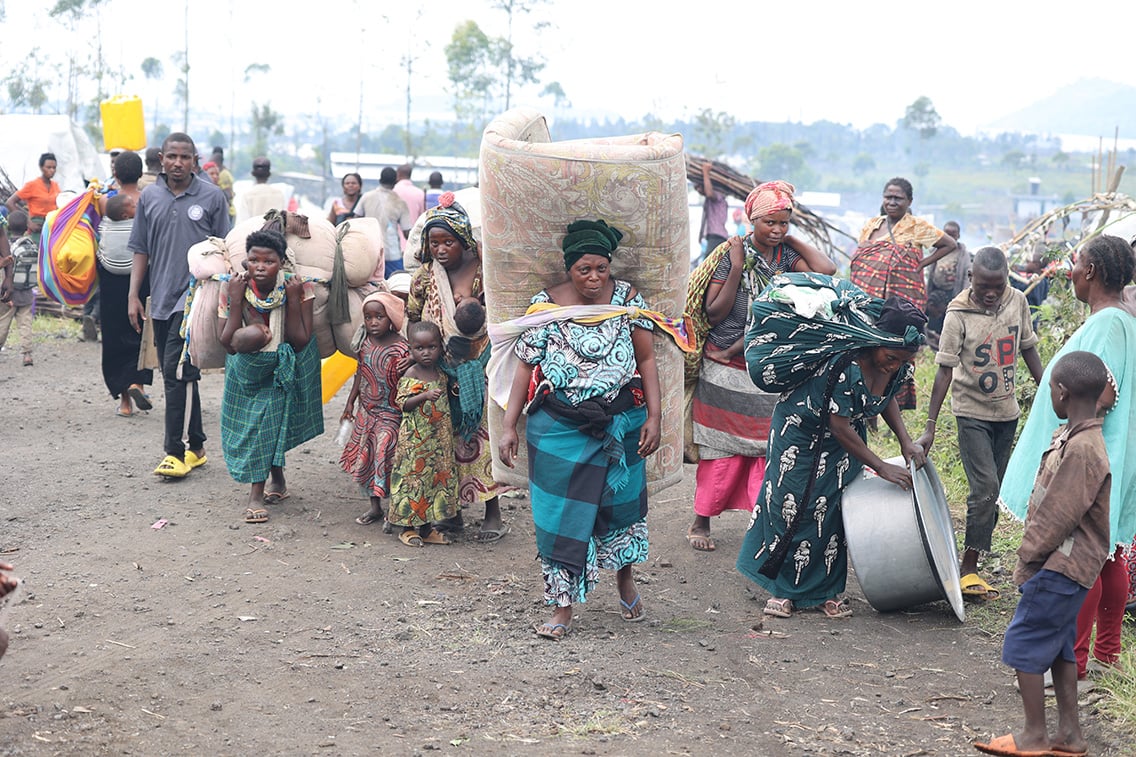UNHCR and UNICEF express grave concern over the humanitarian toll on civilians in eastern DR Congo
UNHCR and UNICEF express grave concern over the humanitarian toll on civilians in eastern DR Congo
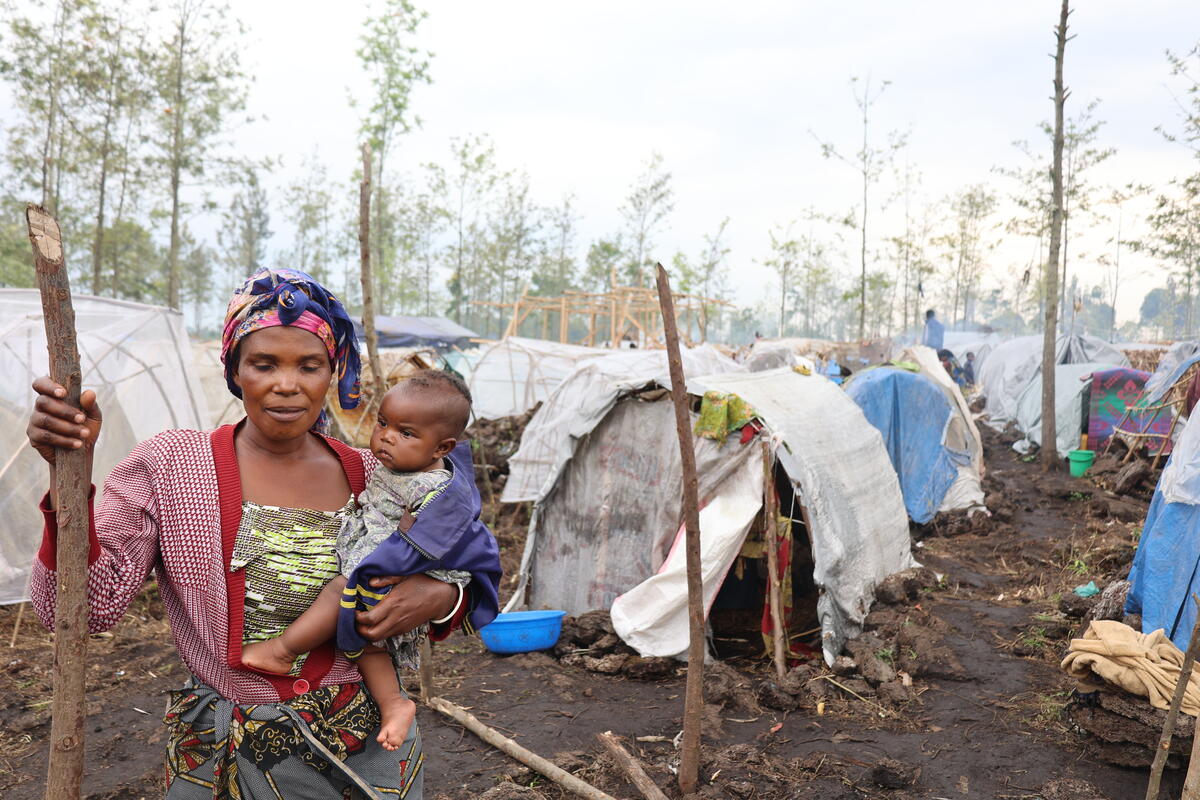
Mutuhimana Godence, 38, and her baby Alliance in a camp for internally displaced people in Rusayo, North Kivu province, DR Congo.
GENEVA – UNHCR, the UN Refugee Agency, and UNICEF, the UN Children's Fund, are greatly alarmed by the escalating crisis unfolding once again in eastern Democratic Republic of the Congo (DRC). Violent clashes between non-state armed groups and government forces have forcibly displaced more than 450,000 people in the last six weeks in Rutshuru and Masisi territories in North Kivu Province.
The severity of the crisis is further exacerbated by the limited humanitarian access to those in dire need, primarily due to the obstruction of major routes. Cut off from essential humanitarian aid, approximately 200,000 internally displaced people are currently stranded. Tragically, an additional 100,000 people are anticipated to confront restricted access in the coming days if the current trends of conflict persist.
The disruption of roads not only impedes the delivery of critical humanitarian aid but also heightens the vulnerability of displaced populations, leaving them without essential resources and protection. Although UNHCR has built shelters in recent months for more than 40,000 people near the provincial capital of Goma, and distributed more than 30,000 kits containing tarps, cooking pots, and blankets, the international community must urgently address the obstruction of humanitarian access to ensure that the nearly 7 million people affected by conflict in eastern DRC receive urgent help.
The gravity of the situation is underscored by the distressing narrative of displaced people in Sake, who are arriving by the tens of thousands in this town, 35 kilometres west of Goma. Having first been displaced in zones where aid was not accessible, they described to UNHCR’s protection monitors making harrowing choices, including men risking death to feed starving children and women risking rape to collect firewood.
These stories are underscored by statistics, with protection monitoring reports collected by UNHCR and partners in October showing over 3,000 reported human rights violations in October, nearly double the figure from the previous month. Rape and arbitrary killings feature prominently in these results, along with kidnappings, extortion, and the destruction of property, illustrating a deeply concerning pattern of abuse inflicted upon civilian populations.
The intensification of violence is having a devastating impact on the lives of children, who are facing an alarming number of serious violations of their rights. The number of overall violations reported against children between July and September 2023, recorded by child protection partners, saw a sharp increase (130 per cent) to 2018 cases on the already high number of violations reported for the first half of the year.
Children are increasingly vulnerable to recruitment and use by armed groups, with more than 450 verified cases from July to September, a 50 per cent increase versus first half of the year.
UN partners and humanitarian actors are urgently scaling up humanitarian and protection assistance to tackle urgent needs stemming from overcrowding and inadequate shelter in spontaneous sites in the eastern provinces, with limited access to food and clean water. Cholera outbreaks continue, signalling concerning limitations of the humanitarian aid currently available.
Since June 2023, UNICEF has reached nearly 700,000 people with lifesaving and life-changing assistance, including clean water and sanitation, child protection, non-food items, health, nutrition and education. With the recent deterioration of the security situation in North Kivu, UNICEF and its partners accelerated processes to identify, document, and support family tracing and reunification in Masisi and Rutshuru territories in October through the increased presence of trained staff and the setting up of listening centres providing vital psycho-social support.
UNHCR and UNICEF urgently call on all actors in eastern DRC to stop the violence that is taking an enormous toll on the civilian population. We stand united in our commitment to alleviate the suffering of those affected by the crisis, but the international community must act swiftly and generously to ensure that sufficient resources are mobilized.
The humanitarian response in the DRC is significantly underfunded. For 2023, the coordinated Humanitarian Response Plan, which includes both UNHCR and UNICEF financial needs, is set at US$2.3 billion, but as of today, it is only 37 per cent funded.
For more information, please contact:
UNHCR
- In Kinshasa, Rachel Criswell, [email protected] +243 81 700 9484
- In Pretoria (regional), Helene Caux, [email protected], + 27 82 376 5190
- In Geneva, Eujin Byun, [email protected], +41 79 747 8719
UNICEF
- In Kinshasa, Hadjara Moussa, [email protected], +243 821 310 263
- In Dakar, John James, [email protected], +221 78 638 0252
- In Geneva, Marixie Mercado, [email protected], +41 79 559 7172


